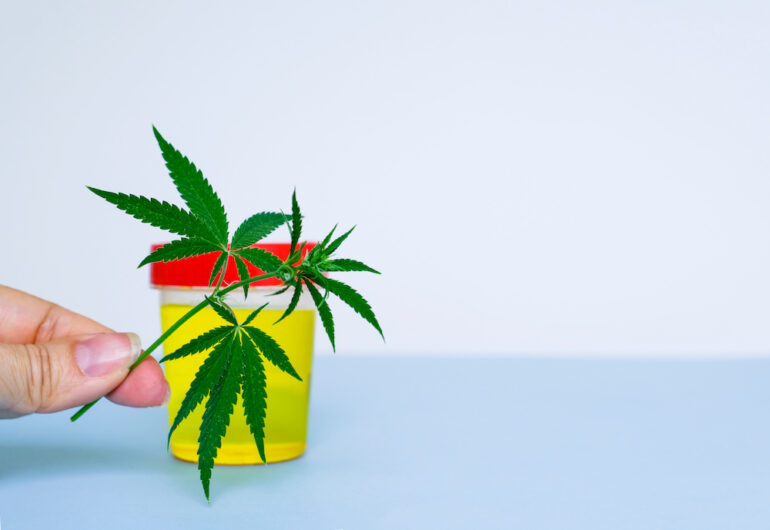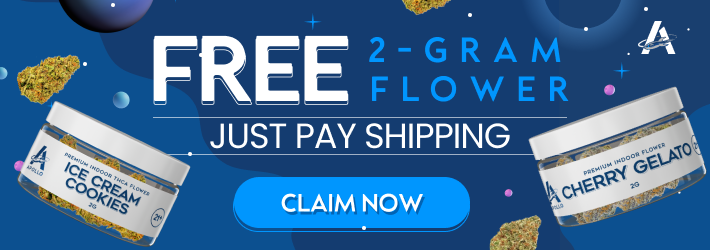A failed drug test can make the difference between getting the job and staying unemployed, it can jeopardize your current job and might cause problems for your rehab or parole terms. Unfortunately, drug tests are an unavoidable part of the world we live in right now, so it’s important to take the right steps if you test positive for marijuana (or anything else).
Luckily, there are several federal laws and regulations which govern drug testing and protect employees from discrimination. You can also decide to challenge the result itself, or offer a credible explanation for your positive result.
RELATED: The Best Ways to Pass a Drug Test
You Can Challenge the Result
If you’re an employee or prospective employee, you can challenge a positive drug test result. It probably won’t change anything, though, unless they re-test you.
We spoke to drug testing consultant Joe Reilly, who explained that:
“Both prospective employees and those employees have a right to challenge their positive drug test result. The challenge process is coordinated by the Medical Review Officer who reviews and verifies the final result. The donor can request his or her specimen to be sent to another certified laboratory for independent retesting, this hardly ever leads to a different result.”
In short, you do have the right to request verification, but if you’ve actually used cannabis recently, it’s unlikely to lead to the original result being overturned. However, you may be requested to test again if your sample was deemed to be too dilute and the lab can’t support a definitive answer.
You May Be Covered by the Americans with Disabilities Act
Even if you test positive, it’s illegal for employers to discriminate against people who are recovering from drug addiction or alcoholism. If you’re trying to stop, you might be able to prevent an employer from acting on a positive result.
The Americans with Disabilities Act (ADA) addresses drug use and testing, and according to the Substance Abuse and Mental Health Services Administration, is responsible for half of all drug-free workplace lawsuits. This is simply because addiction is a chronic illness, and it prevents discrimination on the grounds of disabilities and chronic illnesses.
So if you’re not using anymore and are seeking help, they can’t legally fire you, refuse to hire you or even refuse to promote you because of a failed test. However, the “seeking help” part is really critical to this line of defense. If you genuinely believe you need support to stop using cannabis and are at least in the process of getting help, you may be able to make an argument under the act.
The Family and Medical Leave Act (FMLA) of 1993 may also allow you to take up to 12 weeks of unpaid protected leave to deal with a serious health condition. This applies if your employer has 50 or more employees, you’ve been working there for over a year and you worked 1,250 hours in the past 12 months. So if you fail a drug test, you could acknowledge that you have a problem (to bring in the ADA) and request time off under the FMLA.
If You’re in an Adult Use or Medical State, You Might be Protected
If cannabis use is legal for medical or recreational purposes in your state, it’s possible that the legalization was accompanied by a clause about employment discrimination.
You might assume that cannabis you use legally would not be included, but this is often not the case. The federal drug testing guidelines explicitly state that being a medical marijuana patient isn’t a medical explanation for a positive drug test. So unless your state has specifically instituted a law, this doesn’t generally qualify as a defense.
According to the Marijuana Policy Project, 17 out of 36 medical marijuana states either have explicit protections written into law or courts have generally ruled in favor of employees.
These states are:
- Arizona
- Arkansas
- Connecticut
- Delaware
- Maine
- Massachusetts
- Minnesota
- Nevada
- New Jersey
- New Mexico
- New York
- Oklahoma
- Pennsylvania
- Rhode Island
- South Dakota
- Utah
- West Virginia
There are also explicit protections in 6 of 21 states with adult use cannabis laws. These are:
- California
- Nevada
- New Jersey
- New York
- Montana
- Rhode Island
Some of these laws are better than others, but the ones listed have reasonably robust protections. For instance, in California, from January 2024 it will be illegal for employers to fire, not hire or otherwise penalize workers for using marijuana outside of working hours.
Dale Gieringer, PhD, a drug testing expert and the state coordinator of California NORML also pointed out to us that it “specifically bans urine testing, but allows for oral fluid and breathalyzer tests.” This keeps the focus on current use and cases where actual THC – not inactive metabolites that only tell you what happened days or weeks ago.
New York’s employment protection bans testing for marijuana as a pre-employment screening, but initially allowed employers to test current employees. However, cannabis use is now considered a “lawful off-duty activity,” which means that employers can’t refuse to hire, fire or otherwise discriminate against an employee for their lawful use of marijuana in their free time.
The fact that your state isn’t listed here doesn’t necessarily mean you can’t make this argument, though. The Marijuana Policy Project notes that courts have been more sympathetic to these points in recent years. It’s worth checking the law for your state specifically and getting legal advice from a professional.
Other Explanations Generally Won’t Work
While it is tempting to offer alternative explanations for a positive test result, generally this is not a good idea. For instance, it’s very unlikely that accidental second-hand cannabis smoke exposure will result in a failed drug test, and even though it’s possible to fail from using CBD products, it may be hard to win that argument.
We have more information on these topics in separate posts, but the short version is that in both cases it is technically possible but not particularly likely.
RELATED: Can You Fail a Drug Test from Second-Hand Smoke?
Why Do Drug Tests Even Exist? And Should They?
The reasoning behind drug testing is pretty straightforward: certain drugs are illegal and may make employees incapable of performing their tasks. So the argument is that we should test employees for everybody’s safety, and to ensure people are abiding by state or federal law.
However, things get complicated pretty quickly as state laws develop. Joe Reilly comments that “companies are not addressing the complexities of new marijuana laws in their drug free workplace policies.”
The question, which you’ve likely asked yourself, is “if weed is legal in my state, why should using it put my job in danger?” And unfortunately the answer is that we’re in a mid-stage between prohibition and acceptance, where you can be in a legal state but still have to deal with prohibitionist federal laws.
But there are bigger problems with drug testing, as Dale Gieringer pointed out to us:
“There has never been a single, well-controlled FDA-style study showing that cannabis use, as detected by drug tests, degrades safety or productivity. Less rigorous studies have come up with conflicting evidence. The National Academy of Sciences concluded ‘There is insufficient evidence to support or refute a statistical association between general, nonmedical cannabis use and occupational accidents or injuries’ (“The Health Effects of Cannabis and Cannabinoids” 2017, p. 227).”
In essence, the issue is that drug testing actually detects past use in many cases. Urine testing only tells you that someone has been smoking in the past month, and even more “recent use” measures aren’t really looking at actual, present intoxication.
RELATED: How Long Is Marijuana Detectable in Your Body?
Something much more promising is impairment testing, such as provided by DRUID, to look for relevant, on-the-job effects. This would remove the degrading and unpleasant process of testing someone’s pee in an otherwise respectful workplace. However, things appear to be progressing slowly in this department.
Conclusion: Fight if You Can, Accept if You Can’t
If you fail a drug test, there may be ways you can challenge it under state or federal law. However, in many cases the consequences aren’t avoidable. Unless you were high on the job, it’s unlikely that your marijuana use has any impact on your performance, but the law isn’t quite on your side in many places yet.
If you’ve failed a test and state law doesn’t protect you, the only thing you can do is register your disagreement and move on to the next opportunity.
References (8)
- AB-2188 Discrimination in Employment: Use of Cannabis, Cal. Stat. Chapter 392 § 12954 (2022) https://leginfo.legislature.ca.gov/faces/billTextClient.xhtml?bill_id=202120220AB2188
- Americans With Disabilities Act of 1990, 42 U.S.C. § 12101 et seq. (1990). https://www.ada.gov/law-and-regs/ada/#top
- Discrimination Against the Engagement in Certain Activities, NY Stat. Chapter 31 Article 7 § 201-D (2021). https://www.nysenate.gov/legislation/laws/LAB/201-D
- Gieringer D. Personal interview (2023).
- Family and Medical Leave Act of 1993, 29 U.S.C. § 102 (1993) https://www.congress.gov/bill/103rd-congress/house-bill/1/text
- Reilly J. Personal interview (2023).
- Mandatory Guidelines for Federal Workplace Drug Testing Programs, 87 Fed. Reg. 20522 (April 7th, 2022) https://www.federalregister.gov/documents/2022/04/07/2022-06884/mandatory-guidelines-for-federal-workplace-drug-testing-programs
- National Academies of Sciences, Engineering, and Medicine (2017) The Health Effects of Cannabis and Cannabinoids: The Current State of Evidence and Recommendations for Research. Washington, DC: The National Academies Press. https://doi.org/10.17226/24625

